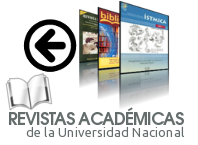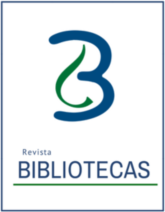Cyberspace: rethinking the metaphor of the human
Keywords:
Cyberspace, Human, Cosmetology, knowledge, ProcessAbstract
In this paper the author refers to changes of perception to be addressed and like in other historical moments, a change of metaphor that must not be understood only as a change cosmetological. That is, each extension of the senses changes the way of thinking, acting and a way of perceiving the world; this in turn implies a change in the process of knowledge. In this way, the author ends rethinking that humanism on the threshold of the twenty-first century, is probably one of the most frigid from the end of the century.
References
Deborah Lupton. The Embodied ComputerlUser en Cyberspace, Cyberbodies, Cyberpunk. Cultures of Technological Embodiment (ed.) Mike Featherstone y Roger Burrows. Londres: Sage. 1995. p. 99.
Op. cit. p. 100.
William Gibson. Neuromancer. Ace Books: New York. 1984. p. 51.4.M. Keith Booker. The Cyberpunk Fiction of WilliamGibson. En Arizona Quartely Review. Vol. 50. Núm.
Winter. 1994. p. 66.
George Lakoff y Mark Johnson. Metáforas de la vidacotidiana. Madrid: Cátedra. 1991. pp. 235-236.
Nancy K. Baym. The Emergence of Community in Computer Mediated Communication. En Cybersociety. Computer Mediated Communication and Community. London: Sage. 1995. p. 153.
Mike Featherstone. Undoing CuIture. Globalization,Posmodernism and Identity. London: Sage: 1995. P. 118.
Dan Thu Nguyen and Jon Alexander. The Coming of Cyberspace and the End of Polity en RobShields (ed.) Cultures of Internet. Virtual Spaces, Real Stories, Living Bodies. London: Sage. 1996. pp. 106-107.
Downloads
Published
How to Cite
Issue
Section
License
Bibliotecas provide immediate open access to their content, based on the principle of facilitating research to the public free of charge and free of charge to promote the global exchange of knowledge.
The journal Bibliotecas is a publication hosted by a public higher education institution, which is supported by public resources. Since its inception, the magazine has offered all its contents free of charge without any restriction on the rights of: reading, downloading and printing in full text. Works published in libraries may be analyzed, quoted and reproduced in whole or in part, mentioning the original source.
The journal Bibliotecas is licensed under the Creative Commons Attribution - Non-Commercial - Share Equal, 4.0 International license; therefore, it is allowed to: share, copy and redistribute the material in any medium or format.

Este obra está bajo una licencia Creative Commons Atribución-NoComercial-CompartirIgual 4.0 Internacional.









